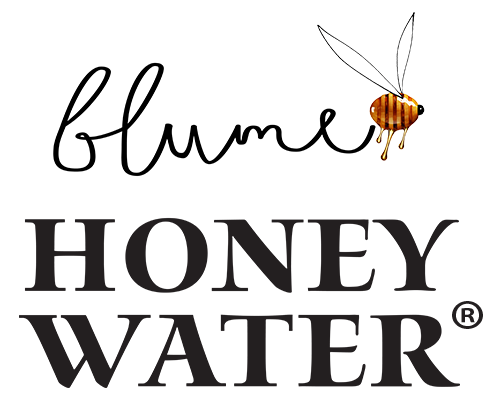The Bees Have The Floor: National Pollinator Week
Blume Honey Water celebrates National Pollinator Week
This week, June 22-28, is National Pollinator Week. That’s right: NATIONAL! In 2007 the United State’s Senate unanimously approved that each June have a week devoted to education, care and nurture of our planet’s declining pollinator populations.
The world now celebrates the invaluable ecosystems serviced by the following powerhouse pollinators:
Honey Bee
Darkling Beetle
Hummingbirds
Spider Hawk Wasp
Click Beetle
Brush-footed Butterfly
Hover Fly
Skipper
Hawk Moth
Fruit Bats
Fireflies
Squirrels
Monkeys
Rodents
Reptiles
pollination 101: the event
Pollination occurs when pollen grains are moved between two flowers of the same species, or within a single flower. Pollination is a vital stage in the life cycle of all flowering plants. When pollen is moved within a flower or carried from one flower to another of the same species it leads to fertilization.
Pollination is the way to ensure the next generation of a flowering plant’s species. This transfer of pollen is necessary for healthy and productive native & agricultural ecosystems. Plants that depend on a single pollinator species, and likewise, pollinators that depend on a single type of plant for food are interdependent. If one dies and disappears, the other will die and disappear, too. In other words: no bees, no Blume!
Pollination 101: the players
Some plants rely on wind pollination (like wheat, for instance) while others (75% of all flowering plants) rely on animals to pollinate on their behalf. Over 200,000 species of animals are in fact crucial pollinators. About 1,000 of those pollinator animals are hummingbirds, bats and very small mammals while the rest are insects like ants, wasps, beetles, moths, butterflies and (our personal favorite) bees.
Successful pollination, which may require visits by multiple pollinators to a single flower, results in healthy fruit and fertile seeds, allowing plants to reproduce. Without pollinators, we simply wouldn’t have many crops or the foods we love and need.
POWERHOUSE POLLINATOR
We can’t think of a better way to indulge in a summer evening than sitting in our garden, sipping on Blume and savoring chocolate. Did you know, a tiny fly (called a “midge”) which is no bigger than a pinhead is responsible for the world’s supply of chocolate.
Honey. Chocolate. Coffee. Fruit. Medicine. We need pollinators and they need us to keep them healthy, alive and well protected. Worldwide, approximately 1,000 plants grown for food, beverages, fibers, spices and medicines need to be pollinated by animals in order to produce the goods on which we depend.
LIGHTEN UP FOR POLLINATORS
Let’s celebrate Pollinator Week with a suggestion by the Pollinator Partnership by requesting local establishments and buildings light up yellow and orange in support of pollinators!
Together, let’s make 2020 the brightest Pollinator Week ever! We made it easy for you...just click here to download the Pollinator Week Lighting request text.
Live in full, beautiful...Blume!

